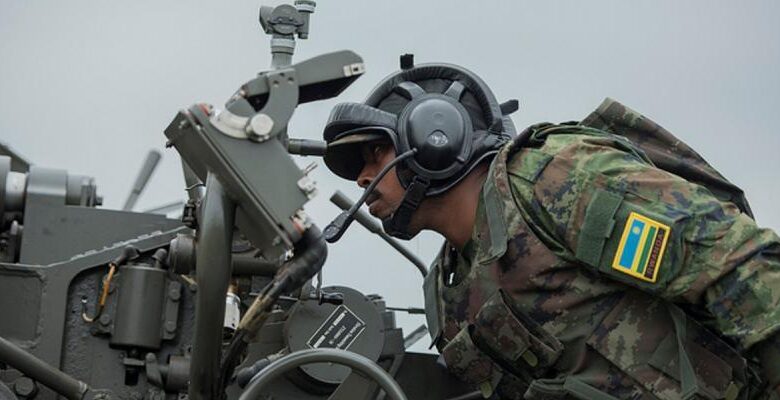Rwandan Soldier Surrenders To UN In DR Congo
The surrender proves DR Congo’s neighbours are providing rebels in the east with men and materiel in their fight over resource rich border region, human rights groups say.

A Rwandan soldier taking part in a rebel advance in Eastern Congo has surrendered to UN forces, human rights organisations say, further evidence that DR Congo’s neighbours have a hand in the conflict.
The Kivu Security Barometer (KSB), a project of the Congo Study Group attached to the University of New York, has revealed the soldier handed himself in to the UN in eastern DR Congo.
Following the advance of M23 rebels on October 24 the soldier surrendered to the United Nations Organisation Stabilisation Mission in the DR Congo (MONUSCO) base in Kiwanja, situated some 30 kilometres from the Rwandan border, the KSB said.
“The Rwandan soldier declared that he did not want to be killed nor to return to Rwanda”, the KSB revealed.
The soldier was handed over to the DR Congo national army, FARDC, Seraphine Kilubu, the DR Congo Vice Minister of National Defense and Ex-combatants announced during the 75th council of ministers meeting on Nov 4.
“A soldier of the Rwandan army escaped from the ranks of the 401st battalion based in Kingi in Rwanda”, the minutes of the meeting relayed by the government spokesperson, Patrick Muyaya revealed.
Drone photographs taken in Rugari the day of the clashes between the Forces Democratiques de Liberation du Rwanda (FDLR) and the Nyatura rebels who were fighting for the control of the locality, show several soldiers carrying military equipment similar to those of the Rwandan Defense Forces (RDF), the Kivu Security Barometer said. It added that six different western and United Nations diplomatic sources have confirmed that Rwandan troops were present during the last offensive of the M23.
In a recent television address, the DR Congo head of state, President Felix Tshisekedi had once again accused Rwanda of having attacked his country under the cover of M23 rebels.
Faced with this resumption of tension, diplomatic channels were reactivated and new discussions under the auspices of the East African Community (EAC) have been announced for November 16, in Nairobi, Kenya.
The Belgian Federal Minister of Foreign Affairs, European Affairs, External Trade and Cultural Institutions, Hadja Lahbib, last week Monday called on Rwanda to “contribute towards the de-escalation of tension and to use all means at its disposal to persuade the M23 rebels to immediately stop fighting, withdraw from zones captured and to re-engage in the community disarmament, demobilisation and reintegration process”.
The minister made the demand during a telephone discussion with her Rwandan counterpart, Vincent Biruta.
Before her, Robert Wood, the Alternative Representative for Special Political Affairs at the United States Mission to the United Nations, had during a meeting of the UN Security Council on the Great Lakes Region, evoked the role of Rwanda in the resurgence of the M23 rebellion.
Support Our Journalism
There are millions of ordinary people affected by conflict in Africa whose stories are missing in the mainstream media. HumAngle is determined to tell those challenging and under-reported stories, hoping that the people impacted by these conflicts will find the safety and security they deserve.
To ensure that we continue to provide public service coverage, we have a small favour to ask you. We want you to be part of our journalistic endeavour by contributing a token to us.
Your donation will further promote a robust, free, and independent media.
Donate HereStay Closer To The Stories That Matter




